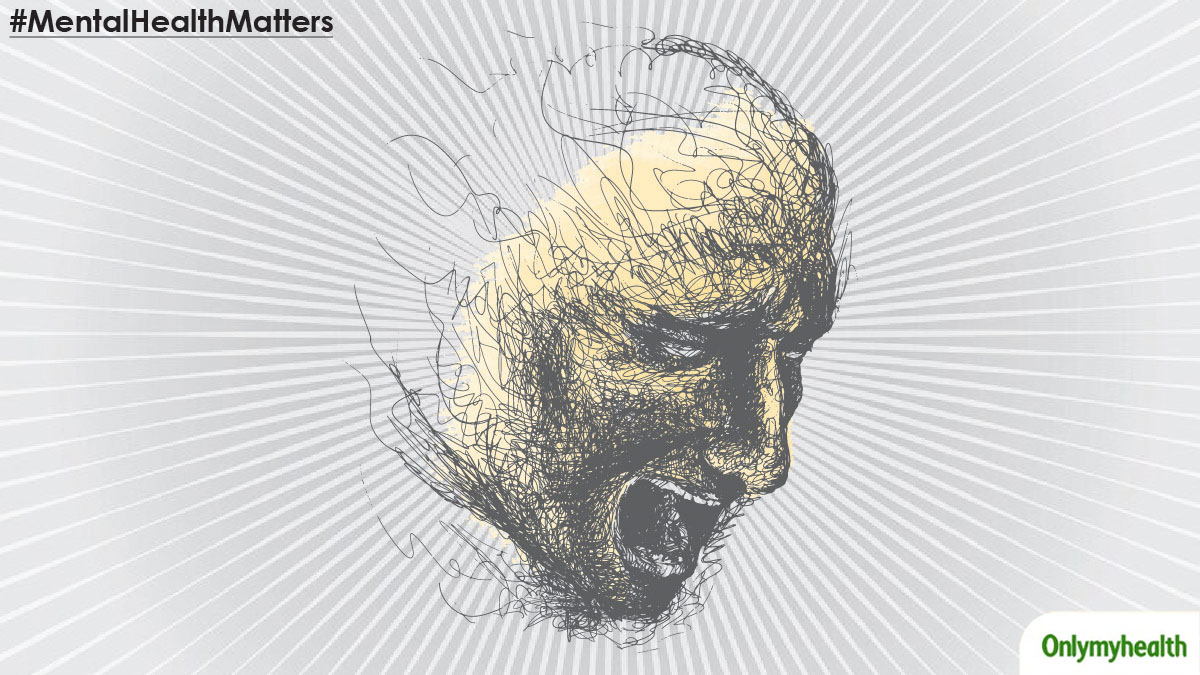
Have you ever experienced anxiety? It's a natural response to stress that most of us encounter from time to time. But for some people, anxiety can take a more overwhelming and inhibiting form, leading to what we call anxiety disorders. This week, in our special campaign, 'Mental Health Matters,' we spoke to Dr Neerja Aggarwal, Psychologist, Emoneeds to learn about anxiety disorders in detail.
Why Talk About Anxiety?
Before anything, we should first know, why should this topic care to us. A study by The Lancet Psychiatry journal found that in 2017, an estimated 197.3 million people in India were affected by mental disorders. This included 45.7 million individuals with depressive disorders and 44.9 million people with anxiety disorders.
Considering the burden, it's important to know the conditions better, so that we can take proactive steps to manage them.
What Are Anxiety Disorders?

"Anxiety is an innate response to stress that individuals may experience at various points in their lives. However, for some individuals, anxiety can become overwhelming and inhibiting, leading to the development of anxiety disorders," said Dr Aggarwal. "These disorders can arise when anxiety reaches a chronic and disproportionate level, significantly impacting a person’s daily functioning, relationships, and overall well-being," she added.
Also Read: Anxiety: Expert Explains Unexpected Health Issues Caused By It
What Anxiety Disorder Means?
"An anxiety disorder is a psychological condition characterised by persistent and intense feelings of fear, apprehension, and unease. Unlike fleeting and situation-specific anxiety, anxiety disorders are chronic and can significantly affect a person’s daily life, relationships, and overall sense of well-being," she explained. "These disorders can present with a variety of symptoms, including physical manifestations and disruptions in cognitive and emotional processes," she added.
5 Main Types of Anxiety Disorders
Here are five important types of anxiety disorders.
Generalised Anxiety Disorder (GAD)
"Individuals with GAD experience persistent and excessive worry and tension about various aspects of their lives, such as work, health, or personal relationships. This anxiety often occurs without a specific trigger and can impact their daily functioning," explained Dr Aggarwal.
Panic Disorder
"People with panic disorder frequently encounter recurring panic attacks, characterised by sudden and intense episodes of fear. Physical symptoms like a racing heart, difficulty breathing, and a sense of impending doom accompany these attacks," she explained.
Social Anxiety Disorder (SAD)
"SAD involves an overwhelming fear of social situations and a constant worry about being judged, embarrassed, or humiliated by others," said the expert. She added that people with SAD may avoid social interactions to alleviate their anxiety.
Specific Phobias
"Specific phobias entail an irrational and extreme fear of a particular object, situation, or activity," said Dr Aggarwal. Citing examples, she said that these include phobias of heights, spiders, flying, or certain animals. Additionally, these fears can lead to avoidance behaviours.
Obsessive-Compulsive Disorder (OCD)
OCD is characterised by intrusive and unwanted thoughts (obsessions) that provoke anxiety and repetitive behaviours or mental rituals (compulsions) aimed at reducing distress. These repetitive behaviours can take up a significant amount of time and disrupt daily activities.
Causes of Anxiety Disorders

"Anxiety disorders can develop due to a complex interplay of genetic, environmental, and psychological factors," said Dr Aggarwal. "Some common triggers include traumatic events, chronic stress, imbalances in brain chemistry, a family history of anxiety disorders, and certain personality traits. It’s important to note that anxiety disorders are complex conditions, and the exact causes may vary from person to person," said the expert.
Also Read: How Anupam Sharma Fought Mental Health Challenges To Live His Bollywood Dreams
Managing Anxiety Disorders
While anxiety disorders can be challenging, effective management strategies can significantly improve a person’s quality of life. Some approaches include:
Psychotherapy
"Cognitive-Behavioural Therapy (CBT) and exposure therapy are commonly used to help individuals identify and modify negative thought patterns and gradually confront feared situations," said Dr Aggarwal.
Medication
"In some cases, doctors may prescribe over-the-counter medications to alleviate symptoms and manage anxiety disorders," said the expert.
Lifestyle Modifications
"Engaging in regular physical exercise, practising relaxation techniques (e.g., deep breathing, meditation), maintaining a balanced diet, and getting sufficient sleep can positively impact anxiety levels," said Dr Aggarwal.
Support Network
The expert said that building a strong support system of friends, family, or support groups can provide emotional assistance and understanding during challenging times.
Conclusion
Anxiety disorders are more than just occasional worries; they are chronic conditions that affect millions of individuals worldwide. By understanding the different types of anxiety disorders, their causes, and effective management strategies, individuals can seek appropriate help and take steps towards living a more fulfilling and anxiety-free life. Remember, reaching out for support is a sign of strength, and with the right resources, anxiety disorders can be effectively managed and overcome.
[Disclaimer: This article is for informational purposes only. Consult your healthcare provider to get a thorough diagnosis and treatment as per your health needs.]
Image Credits: freepik







